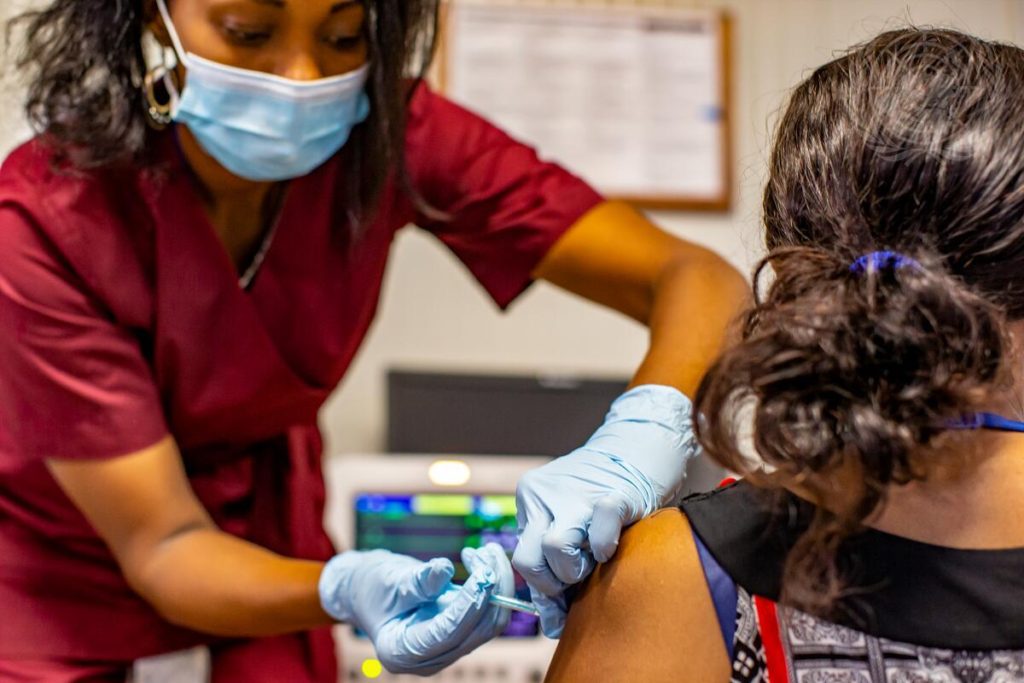New York/Washington, September 22 – US President Joe Biden, who has ordered over 500 million vaccine doses from Pfizer-BioNTech to donate to developing countries, has called on governments to meet the challenges of vaccinating the world and solving the shortage of oxygen bottles needed by hospitalized Covid-19 infected people.
“We need to go big,” Biden told a virtual Covid-19 summit convened by the White House and attended by UN Secretary-General Antonio Guterres and some government leaders who were attending the UN General Assembly in New York.
“We’re not going to solve this crisis with half measures or middle of the road ambitions – we need to go big. It’s an all hands on deck crisis,” news reports said.
President Xi Jinping of China said in his virtual address to the 193-nation assembly on September 21 that Beijing will provide 2 billion doses of vaccine to the world by the end of this year. In addition he said he will donate $100 million to the World Health Organization’s COVAX vaccine program and 100 million vaccine doses to developing countries this year.
“Vaccination is our powerful weapon against Covid-19,” Xi said in his remarks. “Of pressing priority is to ensure the fair and equitable distribution of vaccines globally.”
The WHO said over 5.7 billion vaccine doses have been administered globally, but 73 percent have been in just 10 countries. High-income countries have administered 61 times more doses per inhabitant than low-income countries. Just 3 percent of Africans have been vaccinated.
The Covid-19 pandemic has killed over 4.5 million people in less than two years.
UN News said Guterres renewed his call at the US-led summit for a global Covid-19 vaccination plan in which manufacturers should at least double vaccine production and ensure 2.3 billion doses are equitably distributed through COVAX to reach 40 per cent of people in all countries by the end of this year and 70 percent in the first half of 2022, as WHO recommended.
Guterres proposed that the global vaccination plan be led by an emergency team composed of countries that produce or have the potential to produce vaccines, WHO, COVAX partners and international financial institutions. He said the World Trade Organization will work with pharmaceutical companies to double vaccine production and ensure equitable distribution.
“This is necessary to solve the problems of intellectual property, the problems of technical support to the countries that can produce vaccines but need to be sure that they have all the safety guarantees in their production and, together, the power and the money that the group of countries I mentioned have,” Guterres said. “The United Nations will of course continue to support vaccine rollout in countries and communities that are hardest to reach.
WHO Director-General Tedros Adhanom Ghebreyesus, who also took part in the discussion, thanked Biden for the planned donation of 500 million doses. But he said WHO has so far received only 120 million out of the 1 billion doses pledged by rich countries. He said two-thirds of the 120 million doses came from the United States.
Tedros Adhanom said there should be an ironclad agreement to implement a global vaccination plan because at least 40 percent of the population of every country must be vaccinated by the end of this year, and 70 percent by mid-2022.
“To reach that target, we need 2 billion doses for low- and lower- middle income countries, right now, as the UN Secretary-General said. We call on the countries and companies that control the global supply of vaccines to swap their near-term vaccine deliveries with COVAX and AVAT; to fulfil their dose-sharing pledges immediately; and to facilitate the immediate sharing of technology, know-how and intellectual property,” he said.
United Nations correspondent journalists – United Nations correspondent journalists – United Nations correspondent journalists
United Nations journalism articles – United Nations journalism articles – United Nations journalism articles

